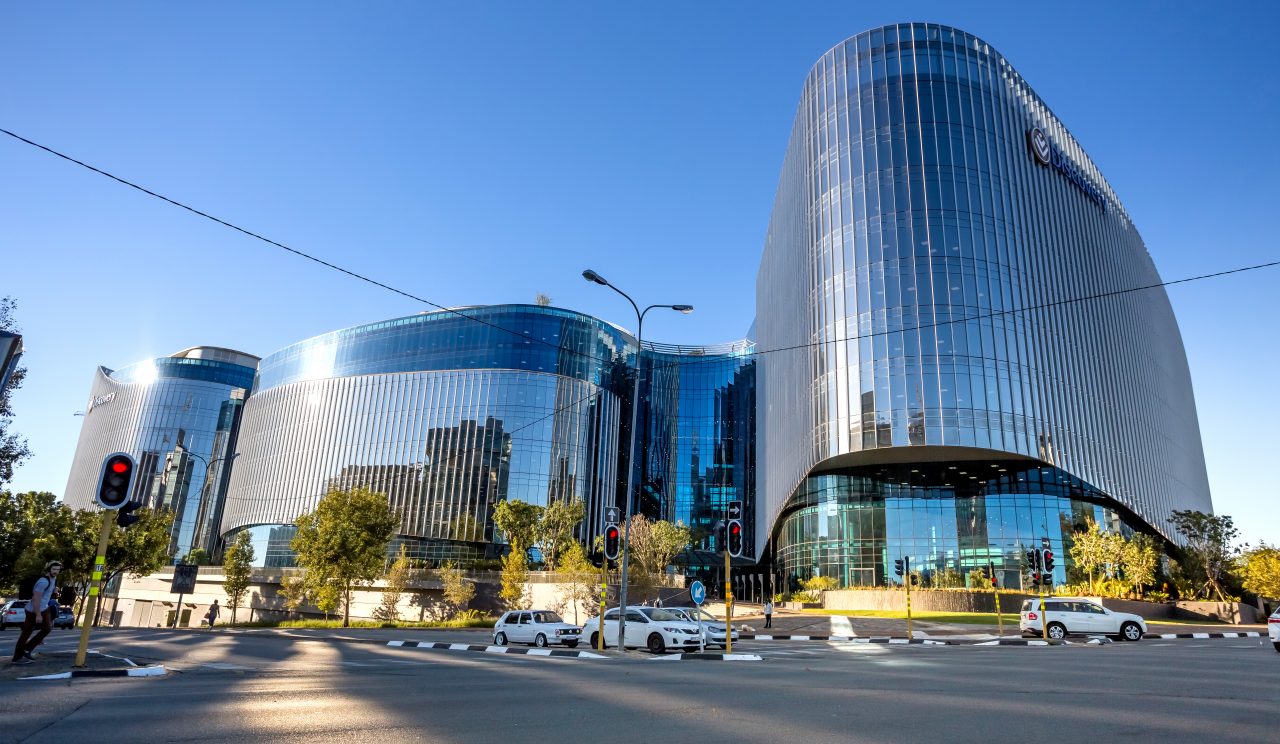Join GlobalBizzNetwork and start your international business network today.
CSR in South Africa
The days when the government was seen as the exclusive social change agent and the absolute macro problem solver are becoming part of the past, as companies are gradually taking a larger role, actively participating in social and community projects under the concept of Corporate Social Responsibility (CSR). CSR refers to the generally voluntary involvement, or investment, of companies in social projects that help advance the society / the community in which they operate in areas such as health care, housing, education, safety, and the environment, among others.
Corporations have come to realize that they cannot operate in isolation to the community, that good governance and social involvement go beyond the work performed in their own offices. Their vision is shifting from one where shareholder’s value and owner’s satisfaction were almost the exclusive corporate goals to another one more sensible that considers and protects not only shareholders, but also all stakeholders; including employees, customers, suppliers, the environment and the community. One has to recognize that the adoption of a CSR posture does not result only from a generalized and progressive “change in corporate conscience”, but also from the pressure of interest groups and nonprofit organizations that defend different social causes (mining companies were mostly targeted for their alleged lack of consideration to the communities they worked in and to the environment), the need to follow accepted business trends and standards, the potential enhancement of the company’s image which can eventually translate into higher sales and lower employee turnover, the need to comply with relevant regulations and to satisfy the public scrutiny, among others. In any case, for one reason or the other, the consideration of the so-called “triple-bottom line”, that incorporates people, planet and profit, is a reality within the corporate world that cannot be ignored by corporations claiming to have good governance policies and high moral standards.
The legal framework for CSR in South Africa
In South Africa, CSR is not only a frequent topic for conversation and debate, but also a tangible effort by many companies. The social picture of the country after the Apartheid era was one of marked inequalities in terms of education, infrastructure, economic power, and basic services access. The democratic regimes that have governed the country since 1994 have made important efforts in combating those social imbalances through different social programs and various public initiatives, but also through the impulse given to the private sector. Although the South African Companies Act 61 of 1973 does not oblige companies to engage in CSR projects, the country’s Policy Document and the King II and King III reports explicitly address the need and relevance for corporations to acknowledge all stakeholders and to adopt a “triple-bottom line” approach. In particular, the King reports constitute accepted guides of best practices in corporate governance in South Africa, focusing on social, environmental and economic concerns. The King reports’ clauses are not mandatory, but they take a “comply/apply or explain” approach that somewhat forces corporations to apply CSR programs or justify why they have not adopted them.
According to research, not all CSR efforts in South Africa result from voluntary or indirect business decisions; some of them are the product of corporate compliance with the Black Economic Empowerment (BEE) legislation. The BEE Act forces South African-based companies to consider all stakeholders when performing their internal and external operations in an effort to eradicate social and economic inequalities inherited from the Apartheid days and to help previously discriminated groups to actively participate in the country’s economy. Companies that refrain from complying with the BEE scorecard can obtain negative ratings, therefore complicating their ability to operate in the country. Corporations should not only see BEE as a way of ensuring black participation (ownership, management and development) in the national economy, but also as a mechanism to empower rural and local individuals/communities and to support protected groups as part of their social responsibility programs and business related activities. At the end, BEE is not exclusively intended to address racial imbalances; it also tries to strengthen the socio-economic spectrum of the country over the basis of equality and fairness.
Although generally large multinational corporations are the ones that are more dynamic on the area of CSR, more and more companies from a variety of sectors and of different sizes are starting to show interest in social responsible policies not only because of global growing trends and external pressures, but also because it can result in efficiency gains. Indeed Porter and Kramer (2011) indicate that addressing societal concerns (like energy and water usage, protection of the environment, employee safety, among others) could increase the levels of company productivity, with the subsequent positive effects in profitability and share value.
Corporate Social Responsibility
Standards for corporate governance are set by the King Reports, issued by the Committee on Corporate Governance chaired by former Supreme Court Judge Mervyn King from 1994. These reports have been hailed internationally as trailblazing in corporate governance and have made the South African system one of the most advanced in the world. Compliance with the King reports is a requirement for companies to list on the Johannesburg Stock Exchange (JSE). The reports The most recent King-III report (2009) requires that companies include ethical considerations (responsibility, accountability, fairness and transparency) in the mainstream of their annual reporting, thereby implementing the CSR agenda of integrated reporting. King in his report makes a direct reference to the concept of Ubuntu as an expression of the moral duties also applying to business. The King reports are guidelines and are not enforced through legislation. The law that regulates companies is the Companies Act no. 71 of 2008. A useful website with all acts, guidelines and relevant case law is www.polity.org.za.
The King Reports – the “Codex” of South African CSR
South Africa’s corporate governance guidelines and standards are contained and institutionalized in the well-known King reports.(6) Although they do not constitute official legal documents; they are regarded as state-of-the-art guidelines regarding good corporate governance and its adoption is highly popular / recommended in the country’s business sphere.
In 1994, the King Committee on Corporate Governance issued the first report, King Report 1994 or King I, aimed to promote corporate governance and adequate standards for board of directors of listed companies, financial institutions and some public enterprises. While encouraging good governance practices, the report also emphasized the need for corporations to be socially responsible in the areas and communities in which they operate.
In 2002, the King II report on Corporate Governance was published. More or less at the same time, the Johannesburg Stock Exchange requested listed companies to comply with the King report or otherwise justify why they were not adhering to the norm. The second document clearly established and explained the seven good corporate governance elements that any corporation adopting the report should pay attention to: discipline, transparency, fairness, social responsibility, independence, accountability and responsibility.
The third revised issue of South Africa’s Code of and Report on Governance Principles or King III report was made effective in March 2010. With respect to the previous versions, the new report focuses on sustainability and risk issues, while continuing to highlight the importance for companies to respond to all stakeholders. The topics covered in the report are: ethical leadership and corporate citizenship, boards and directors, audit committees, the governance of risk, the governance of information technology, compliance with laws, rules, codes and standards, internal audit, governing stakeholder relationships and integrated reporting and disclosure.
Indirect regulatory actions, like the preparation and propagation of the aforementioned documents, can indeed help promote CSR initiatives in different industries. That is also the case of the launch and growth of the Johannesburg Stock Exchange Social Responsibility Index (JSE SRI) in 2004. The SRI informs investors and market agents about corporate sustainability policies and practices of listed companies, encouraging investors to support “friendly” companies, and pushing corporations to reinforce their environmental, social and governance initiatives. Responsible investment is a relatively new concept (the Dow Jones Sustainability Indexes were introduced in 1999 and the FTSE4Good Index Series was launched in 2001), especially in emerging markets where South Africa was the first one in launching a sustainability index, followed by Brazil in 2005 (BM&F Bovespa).
Stewards of social responsibility: examples of CSR in South Africa
Companies in South Africa have engaged in social responsible behaviors in many ways. For example, global leading mining company BHP Billiton relies on BHP Billiton Development Trust South Africa to implement, coordinate and manage various sustainable development initiatives in the areas of education and training, capacity building, socio economic development and health care.(8) Particularly, BHP Billiton Energy Coal South Africa has established different mechanisms to protect the environment, to enhance the safeness and security of their employees, to support the community and to empower individuals (including women) to participate and profit from local mining and energy activities.
Coal mining and development company Coal of Africa (CoAL) has also engaged in different initiatives to demonstrate its commitment with local communities in South Africa and with the protection of the environment. In 2009, CoAL committed to spend R500 m (over USD 70m) over thirty years in social and environmental projects, and to promote local employment through its Vele coking coal project (expected to generate 30,000 direct and indirect jobs).
As part of their social responsibility global policy, SAB Miller and its South African subsidiary SAM Ltd – the largest brewing company in the country -, have set 10 sustainable development priorities (including communities, HIV/AIDS, human rights, waste, packaging, responsible drinking, water, energy and carbon, enterprise development and, transparency end ethics) that they pay special attention to and periodically monitor in every one of their affiliates. In South Africa, for example, they have made important improvements in the areas of waste management, communities and, transparency and ethics over the past couple of years. They still are progressing in the areas of responsible drinking and, energy and carbon emissions.
Standard Bank, one of the country’s leading financial institutions, has also made important contributions in the area of CSR. The Group’s annual social investment expenditure is funded by not less than 1% of prior year after-tax income from its South African operations. In 2010, the Group’s corporate social investment amounted to ZAR 132,3m (approximately USD 20m), a 31% increase with respect to 2009. The breakdown in South Africa indicates that 36.4% went to education programs and 35.5% to enterprise development, which reflects the bank’s focus on empowering individuals and creating economic wealth, among other relevant socio-economic goals. It is interesting to note that South Africans consider financial institutions as the most socially responsible among 12 sectors, according to a survey by Globe Scan Incorporated. The study also indicates that tobacco and alcohol companies have the worst reputation when it comes to corporate citizenship.
The road ahead
Although many companies are adhering to international standards and trends of CSR in response to both internal and external requirements, there is still plenty of room for growth. Particularly in South Africa, where major problems of economic and social inequality still prevail and where efforts are needed to ensure the equal access to basic goods and services, CSR could still develop and expand. The variety of social needs of the country in areas such as education, health care (HIV/AIDS), entrepreneurial development, among many others offer a wide spectrum for corporations to launch valuable CSR initiatives that not only can help solve pending social issues, but also empower local individuals to be part of their own communities’ economic growth. Corporations could even opt to form partnerships with nonprofit organizations or with governmental agencies in an effort to expand the reach of its CSR actions and to serve local communities in a more efficient and impactful way.
Appropriate, mostly indirect, regulation, as well as the costumer’s increasing demand on environmentally friendly products and services should continue pushing companies to promote CSR policies in the interest of all stakeholders. In the survey conducted by Globe Scan Incorporated in 2011, slightly less than half of the interviewees reported having considered rewarding social responsible companies, while 20% actually did so over the previous year. One could expect those figures to increase over the following years, something corporations should not overlook.
Source: www.consultancyafrica.com / by Micaela Flores-Araoz









